Neal Casal is the lead guitarist for The Chris Robinson Brotherhood, fronted by singer Chris Robinson of Black Crowes fame. The CRB has played over two hundred live shows since forming a few years ago, and has three studio albums out, including 2014’s Phosphorescent Harvest.
Before joining the CRB, Casal played with Ryan Adams & The Cardinals, including on the albums Easy Tiger and Cardinology, plus Willie Nelson’s 2006 album Songbird. Casal has also released a number of solo albums, most recently 2012’s Sweeten the Distance.
This interview was for a preview article for the Chris Robinson Brotherhood concert at the Santa Barbara Bowl on 7/3/14, for which they shared the bill with Bob Weir & RatDog. The interview was done by phone on 6/19/14. (John Margaretten photo)
Jeff Moehlis: I saw you guys in 2011 when you did your Santa Barbara residency. Did you you enjoy those visits to Santa Barbara, and how has the band evolved since then?
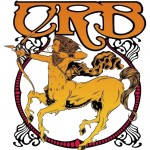
Neal Casal: That Santa Barbara residency, and the larger California residency that we were doing there in the spring of 2011, was the very beginnings of the band. So we’ve come a long, long way since then. We sound a lot different, the whole experience of seeing our shows feels a lot different. So yeah, there’s been a lot of evolution since then. That was the point in our evolution where we were figuring out how to be a band in front of people. Growing up in public. Because those were our very first shows, and we had rehearsed very little for those shows. We just kind of rehearsed on the road.
Honestly, those Santa Barbara shows were pivotal in our becoming a band, pivotal in our decision to continue as a band, to continue past the two months of California shows that we had initially booked. I think it was the second week at SOhO when everything all fell together, and we felt the crowd react and connect to what we were doing, and the room exploded and we all looked at each other and collectively thought “Right, this is gonna work.” It was upwards from there. So those Santa Barbara shows were really, really important to us.
Santa Barbara and San Diego were where we actually started to gather our first strong followings. It didn’t happen in L.A. It took a while in San Francisco. But Santa Barbara is where we first felt the love, you know? And by the end of that run we packed SOhO every time we came back. That’s where we really gained our confidence and felt like we could make a run at this. Santa Barbara is definitely a very central part of our history.
JM: That’s good to hear. How did you first get the gig with the Chris Robinson Brotherhood? Did you guys know each other already?
NC: Yeah, I was in a band called Beachwood Sparks, one of the great L.A. bands of the early 2000’s. We did a tour opening for the Black Crowes in 2001, and that’s where I met Chris. As it turned out we had a lot of mutual friends from living in New York, because I used to live in New York City, too. We just stayed in touch ever since, and, you know, eventually it came around that he wanted to start this band and thought of me, called me up, and off we went. He and I have such similar taste in music and books and everything that we’re into. It was very easy to line up our visions.
JM: When I saw you at SOhO you did a lot of really cool cover songs, in addition to originals. How do you decide which songs you cover?
NC: That’s mostly up to Chris. He is just such an avid music listener, and is always teeming with ideas for covers. We kind of let him handle that department, and just drop into whatever ideas he has. The guy has such excellent taste in music that it’s never a problem.
We still do a lot of covers. They just keep revolving in and out of our sets all the time. That’s one thing, even though we’ve changed a lot in three or four years, that hasn’t changed, the love of doing some good covers. It kind of lightens the mood. It lightens the pressure on us to always play originals. It’s good. We do some good dance grooves for people. It’s a good dynamic.
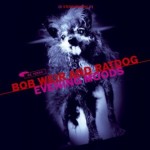
JM: So you’re sharing the bill with Bob Weir & RatDog. I definitely got a bit of a Grateful Dead vibe from what you guys were doing at SOhO. Did you ever get to see the Grateful Dead perform live?
NC: I did, many times. I saw the Dead a lot, and I saw the Jerry Garcia Band, too. So I have some direct experience in this connection. I’ve been a long-time Deadhead, and proud to say it. That part of all of this feels… It’s a surprise to actually get to be around people like Bob Weir, and I played with Phil Lesh, too, to be around these people is just the last thing I ever would’ve imagined happening, because they’re such icons. But at the same time it’s not that foreign to me, because the music is very familiar, and a really big part of my own playing. So it feels very organic and natural to be hanging out with those guys.
JM: Are you willing to go on record on what was your favorite Dead show that you saw?
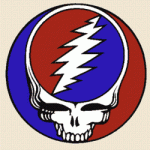
NC: I’ll tell you my favorite Grateful Dead moment. It’s when they played the song called “Days Between”, which was one of their newer songs. You know, it wasn’t one of their classics. It was a newer song that at the time had never made it onto a record. I’d seen a rut of not-the-best Dead shows, shall we say, and there was a moment, I think this was in ’93 or something, getting towards the end of their career, where I was watching them, I think it was at the Nassau Coliseum, somewhere on the East Coast, and they were just kind of going through the motions of a normal show.
And then the dropped into the song, “Days Between”, which if you know it at all, you know the lyrics and you know the vibe of the tune, it was just one of those really heavy, really profound moments in music that I’ve ever witnessed. When Garcia started singing that song, it literally felt like the world stopped turning and everything froze, and everyone in the place… It was just one of those collective moments where people just froze and felt the weight of those words, and felt the weight of where this guy was at in his life, and where the band was at. It wasn’t one of the more joyous and upbeat moments, it was a much more poignant, melancholic moment. They had that in them. It was really one of the heaviest live music moments that I’ve ever seen, and I’ve never forgotten it.
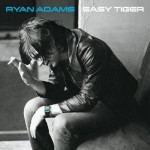
JM: I first heard your playing, on a record at least, when you were with Ryan Adams. How does it compare playing with Chris Robinson Brotherhood versus when you were with Ryan Adams?
NC: Well, it doesn’t. It doesn’t. They’re totally different people, totally different styles of writers, totally different personalities. I rarely equate playing with The Cardinals to playing with the CRB. There were a couple of similar Dead connections, because Ryan’s a big Dead guy, too. I actually first met Phil [Lesh] through Ryan. So there’s a bit of that, but really not much. I don’t connect the two very often. They’re two very different experiences, and two different times in my life. I mean, playing with Ryan and The Cardinals was certainly an amazing time for me, but they’re not that similar.
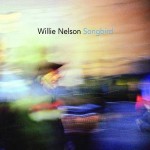
JM: I have to ask you about the experience of playing with Willie Nelson. What was that like?
NC: That was incredibly cool. That was a thing with Ryan and The Cardinals. We made a record [Songbird] with Willie, and it was just as amazing as you would imagine. We got to play music with him all day, we got to shoot pool with him, everybody got stoned with him. It was cool. It was a good, loose experience. I got to teach him a song, too, which is really cool, the title track of that record, “Songbird”. Ryan had the idea to have Willie sing that tune, but Willie didn’t know it, so I was given the task to sit at a piano with Willie and teach him how to sing the song. Which was a pretty surreal experience, for sure. To have Willie Nelson asking me how to phrase a line [laughs], that was definitely one of the most psychedelic moments in my life. Yeah, it was a great experience.
And I learned a lot from the guy. I learned a lot about singing. I learned a lot about the power of a great voice, just what that means in music. Being a good instrumentalist is great, having a good band is cool, all of those things are nice. But when you have the song and you have the voice, like that, that is what changes things. That’s what moves people on a mass scale. There’s just something else that happens when you have a voice that great. That’s part of what I took away from that.
JM: What advice would you give to an aspiring musician?
NC: [laughs] I don’t know. I don’t know how to answer that at all.
JM: Anything? You can sometimes see where a musician’s mind is at based on their answer to that question. Sometimes it’s like, “Get a lawyer”, or “Don’t do it”.
NC: My answer is not a stock answer. I don’t have a pat answer for that question. I hate to make this complicated, but really, giving one generic answer to all musicians could be really a terrible mistake. Because telling one person one thing can send them down the wrong road, while that same advice can send another person in the right direction. So I would never, in any form, give one stock answer for all people, because that’s not how things work. It all works on an individual basis.
My advice for an aspiring musician would come after speaking with him or her for a while, and finding out a little bit about who they are, what they want, where they want to go with it, and what they want to do with their life. If someone wants to ask me advice, personally, we’ll talk for a while, and maybe then I’ll have something to contribute.
What worked for me, or what I did, would definitely not work for everybody. And I certainly wouldn’t recommend my path to everyone, at all. I don’t think people would have to go through everything that I did to do this. That’s just not how things work. I’m a totally self-taught musician, I don’t know how to read music, I never went to college, I barely graduated high school. You know, I lived in a barn for a year to do this for a living, with a band. I struggled massively financially for years. I went though all kinds of disappointments and frustrations and humiliations, trying to get record deals and all that. I wouldn’t recommend all of those things for people.
I think some people feel like people should have to go through what they did, you know, in order to be successful. Or in order to have properly paid your dues, or something. I really don’t feel that way. If I had any advice for people I would give them the advice to try to cut off a lot of the wasted time that I spent trying to figure things out. I would try to shorten their path, so they didn’t have to go through what I did. Because I went through so many unnecessary motions because there was no one there to tell me what was going on, or to give me the correct advice. That’s actually an important question to me, and I would caution pat answers and I would caution generic answers to that question.
There’s a very long-winded answer to your question. But I’m actually quite passionate about it, now that we bring it up.
JM: You’re maybe the first person who I’ve asked that question to who said that you’ve really got to know the individual to give advice.
NC: Everyone wants to make quick work of that question, and come up with something witty and clever like, “Get a lawyer”, “Keep your day job”, you know, all that shit. Those are the answers to immediately discard. You have to take that stuff seriously. I don’t have kids, but it’s kind of like raising a child. The things that you say to them… Just be mindful. Because you could say one thing that turned them down the wrong road that could’ve easily been reversed. I feel pretty strongly about things like that. So my answer is – no generic answer.
JM: Obviously you’re on tour right now. But what are your plans, musical or otherwise, for the near future? Do you have another album in the works?
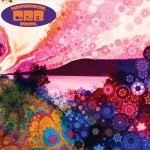
NC: The CRB is touring heavily this year because we have our new Phosphorescent Harvest record out. That’s where our heads are at right now, just trying to get the word out about our record, and touring. We’re really at a high point as a live band. We’ve been working hard for a few years to get our sound together, and to get our show together, and we’re kind of at a creative peak at the moment. It’s pretty exciting. So we’re touring all year, we’re working on new songs to record early in the new year. And we’re going to tour next year as well. That’s what’s happening.
JM: I know that you’ve also done a lot of solo records. Do you still have time to do that, or are you keeping pretty busy with CRB?
NC: CRB’s got me very busy at the moment. My solo music is something I’ve done for almost 25 years now, so it’s a part of the fabric of who I am, and it’ll always be there in some form or another. Right now it’s certainly in the background because I’m really excited to be playing with CRB, but we’ll see what the future holds. It’ll always be around.
JM: Do you have any plans to play with Ryan Adams anymore?
NC: No, not at the moment. It looks as though he has a new record coming out soon, and we’re still friends but on separate paths at the moment.
JM: Where are you speaking to me from?
NC: From Louisville, Kentucky. We played Milwaukee last night, we play Louisville tomorrow, and then St. Louis, then Lawrence, Kansas, and then we start heading back west again, I think.
JM: Well, you’re here in just a few weeks. You guys rack up the miles.
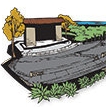
NC: Yeah, and I’m really psyched to play the Santa Barbara Bowl. I’ve always wanted to play there since I first went there. I saw the greatest show of my life at the Santa Barbara Bowl, so I’ve always wanted to step on that stage.
JM: What show was that?
NC: It was Neil Young, I think it was September of 2000. It’s the best show I’ve ever seen in my life. He was levitating. It was like he was possessed. It was unbelievable. I’ve never seen anything like it. It was watching a true master at work. I had never been to the Bowl before, and that place just enchanted me. A September night under the stars, a beautiful place, and Neil Young came out and just blew our minds. I’ve always thought, man, I’d love to play there. I live in Ventura, now, so that coastline has become my home over the past four or five years. It’ll be good to play the home turf.

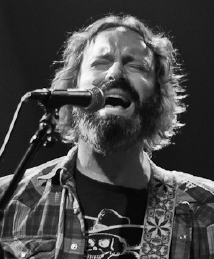
Discussion
No comments for “Interview: Neal Casal”